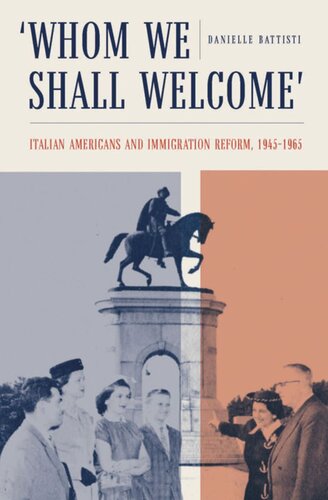

Most ebook files are in PDF format, so you can easily read them using various software such as Foxit Reader or directly on the Google Chrome browser.
Some ebook files are released by publishers in other formats such as .awz, .mobi, .epub, .fb2, etc. You may need to install specific software to read these formats on mobile/PC, such as Calibre.
Please read the tutorial at this link: https://ebookbell.com/faq
We offer FREE conversion to the popular formats you request; however, this may take some time. Therefore, right after payment, please email us, and we will try to provide the service as quickly as possible.
For some exceptional file formats or broken links (if any), please refrain from opening any disputes. Instead, email us first, and we will try to assist within a maximum of 6 hours.
EbookBell Team

0.0
0 reviewsWhom We Shall Welcome examines World War II immigration of Italians to the United States, an under-studied period in Italian immigration history. Danielle Battisti looks at efforts by Italian American organizations to foster Italian immigration along with the lobbying efforts of Italian Americans to change the quota laws. While Italian Americans (and other white ethnics) had attained virtual political and social equality with many other groups of older-stock Americans by the end of the war, Italians continued to be classified as undesirable immigrants. Her work is an important contribution toward understanding the construction of Italian American racial/ethnic identity in this period, the role of ethnic groups in U.S. foreign policy in the Cold War era, and the history of the liberal immigration reform movement that led to the 1965 Immigration Act.
Whom We Shall Welcome makes significant contributions to histories of migration and ethnicity, post-World War II liberalism, and immigration policy.
Builds a complicated picture of Italian-American attitudes toward immigration by looking at support for programs to aid immigrants in assimilating, for legislation to provide resettlement support, and for the use of refugee programs to provide a politically palatable method of family reunification